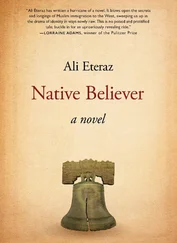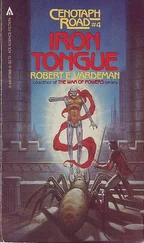radama:to non-touch, to actively refrain from touching
radamalh:to non-touch with evil intent
radéela:non-garden, a place that has much flash and glitter and ornament, but no beauty
radíidin:non-holiday, a time allegedly a holiday but actually so much a burden because of work and preparations that it is a dreaded occasion; especially when there are too many guests and none of them help
radodelh:non-interface, a situation which has not one single point in common on which to base interaction, often used of personal relationships
raduth:to non-use, to deliberately deprive someone of any useful function in the world, as in enforced retirement or when a human being is kept as a plaything or pet
rahéena:non-heart-sibling, one so entirely incompatible with another that there is no hope of ever achieving any kind of understanding or anything more than a truce, and no hope of ever making such a one understand why… does not mean “enemy”
rahobeth:non-neighbor, one who lives nearby but does not fulfill a neighbor’s role; not necessarily pejorative
rahom:to non-teach, to deliberately fill students’ minds with empty data or false information; can be used only of persons in a teacher/student relationship
ralaheb:something utterly spiceless, “like warm spit,” repulsively bland and blah
ralée-:non-meta (a prefix), something absurdly or dangerously narrow in scope or range
ralith:to deliberately refrain from thinking about something, to wall it off in one’s mind by deliberate act
ralorolo:non-thunder, much talk and commotion from one (or more) with no real knowledge of what they’re talking about or trying to do, something like “hot air” but more so
ramime:to refrain from asking, out of courtesy or kindness
ramimelh:to refrain from asking, with evil intent; especially when it is clear that someone badly wants the other to ask
ranem:non-pearl, an ugly thing one builds layer by layer as an oyster does a pearl, such as a festering hatred to which one pays attention
rani:non-cup, a hollow accomplishment, something one acquires or receives or accomplishes but empty of all satisfaction
rarilh:to deliberately refrain from recording; for example, the failure throughout history to record the accomplishments of women.
rarulh:non-synergy, that which when combined only makes things worse, less efficient, etc.
rashida:non-game, a cruel “playing” that is a game only for the dominant “players” with the power to force others to participate
rathom:non-pillow, one who lures another to trust and rely on them but has no intention of following through, a “lean on me so I can step aside and let you fall” person
rathóo:non-guest, someone who comes to visit knowing perfectly well that they are intruding and causing difficulty
raweshalh:non-gestalt, a collection of parts with no relationship other than coincidence, a perverse choice of items to call a set; especially when used as “evidence”
sháadehul:growth through transcendence, either of a person, a non-human, or thing (for example, an organization, or a city, or a sect)
wohosheni:a word meaning the opposite of alienation; to feel joined to, part of someone or something without reservations or barriers
wonewith:to be socially dyslexic; uncomprehending of the social signals of others
zhaláad:the act of relinquishing a cherished/comforting/familiar illusion or frame of perception
A First Dictionary and Grammar of Láadan is published by the Society for the Furtherance and Study of Fantasy and Science Fiction, Inc. For further information send SASE to Láadan, P.O. Box 1137, Huntsville, AR 72740-1137.
Encoding a Woman’s Language
Native Tongue (1984) inaugurates Suzette Haden Elgin’s powerful trilogy about the invention of a female language. As the first volume of this trilogy, Native Tongue introduces us to the patriarchal culture of a future Earth, where a small number of linguistically skilled women are banding together to fight their second-class status by secretly creating a women’s language. The sequel, The Judas Rose (1987), follows the story of that language, Láadan, as it evolves from the private creation of a very few women to a shared language that subversively links women worldwide, and then as it is discovered by the patriarchal church and state it was created to oppose. The concluding book in the trilogy, Earthsong (1994), turns from the question of a gender-based language to the broader question of alternate and gender-linked forms of nourishment, as women try to spread the news of another way of feeding the world, aurally rather than orally.
Central to this trilogy, as to most of the science fiction of Suzette Haden Elgin, are two interrelated convictions: “The first hypothesis is that language is our best and most powerful resource for bringing about social change; the second is that science fiction is our best and most powerful resource for trying out social changes before we make them, to find out what their consequences might be” (Elgin, “Linguistics”). Elgin’s definition of feminism can be gleaned from the type of social change she is most interested in making: the eradication of patriarchy and its replacement with “a society and culture that can be sustained without violence” (Elgin, “Feminist” 46). The belief that “patriarchy requires violence in the same way that human beings require oxygen” links the Native Tongue trilogy to Elgin’s bestselling non fiction book, The Gentle Art of Verbal Self-Defense : both are concerned with feminist linguistic interventions, the production and/or teaching of “gentle” linguistic strategies to counter, and thus change, verbal violence (Elgin, “Feminist” 46).
Fifteen years after it was first published, and despite a number of years out of print, Native Tongue retains a cult following and remains an important contribution to the canon of feminist science fiction as well as to feminist debates about the significance of language. Its importance is far more than academic, although it also serves as a historical document highlighting the particular concerns of feminism in the early 1980s. With all of the changes feminism has wrought in American society, Native Tongue and its sequels remain exciting for the sense of expanded social possibilities they embody.
The themes of the Native Tongue books have been woven throughout Suzette Haden Elgin’s life and work. She received her Ph.D. in linguistics, with a focus on the Navajo language, from the University of California at San Diego in 1973, at the age of thirty-seven. Earlier degrees were in French, English, and music, all of which came into play in her later teaching. Elgin taught at San Diego State University until she retired in 1980, at which time she began the Ozark Center for Language Studies near Huntsville, Arkansas. She is the founder and president of LOVINGKINDNESS, a nonprofit organization that investigates religious language and its effect on individuals, as well as the editor and publisher of Linguistics and Science Fiction , a bimonthly newsletter interested in language issues in genre fiction. She writes prolifically in a variety of forms, including fiction, poetry, and essays, and she now draws prolifically as well. Her best-known work, however, is the popular series of books that begins with The Gentle Art of Verbal Self- Defense , which teaches readers how to identify and defuse verbally violent or combative situations [1] Elgin’s nonfictions series has grown quite extensive. In addition to the original Gentle Art of Verbal Self-Defense , it includes The Last Word on the Gentle Art of Verbal Self-Defense (1987), The Gentle Art of Written Self-Defense: Letters in Response to Triple-F Situations (1993), Genderspeak: Men, Women, and the Gentle Art of Verbal Self-Defense (1993), and The Gentle Art of Communicating With Kids (1996), among others.
.
Читать дальше












